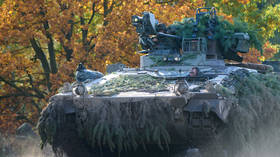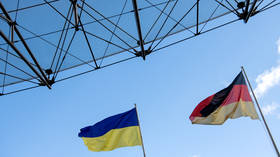Divisions in Germany over military aid to Ukraine – media

There is division in the German government over a proposal to restore and deliver to Ukraine some 100 old Marder infantry fighting vehicles. Politicians from the Green Party are pushing for the move, but Chancellor Olaf Scholz remains reluctant, according to a Politico report published on Thursday.
Scholz’s delay of the final decision, which was expected this week, has frustrated its backers, including Vice Chancellor and Economy Minister Robert Habeck and Foreign Minister Annalena Baerbock, according to the report.
Cabinet members have so far refrained from publicly criticizing the Social Democrat leader, but some lawmakers were more open about their frustration. Anton Hofreiter of the Greens, who chairs the parliamentary committee on European affairs, told Politico that Germany should show leadership and not hide behind other nations.
Like many other NATO members, Germany supplied Ukraine with military equipment, but refused to deliver any heavy weapons. Scholz told the parliament this week that he wanted to coordinate the proposed delivery of armor with the EU and NATO, arguing “it would be a grave mistake for Germany to take a special role and a special path.”
The proposed shipment involves decommissioned Marder infantry fighting vehicles that are stored by its producer, Rheinmetall. Most of the armor will have to be refurbished before it could be of any use to the Ukrainian military.
Kiev’s forces will also need to be trained on how to use and maintain them and Germany will have to supply munitions and spare parts. Berlin is concerned that the proposed transfer could drag it into a war with Russia.
Proponents of arming Ukraine suggest speeding things up by supplying Marders that are currently on active duty and using the decommissioned vehicles as replacement further down the road. They also call for delivering Leopard main battle tanks and other heavy weapons to Ukraine.
Politico quoted Thorsten Benner, director of the Global Public Policy Institute think tank in Berlin, who argued that by supplying armor to Ukraine Germany could tone down criticism over its continued reliance on Russian natural gas.
“I think it’s of central importance for German credibility that we don’t put the brakes on everywhere, but that there is also an area where we lead,” he said. “And especially if it is currently impossible for Germany to stop the gas payments, which bring [Russian President Vladimir] Putin billions, in the foreseeable future, then battle tanks would be a good alternative.”
Moscow attacked its neighbor in late February, following Ukraine’s failure to implement the terms of the Minsk agreements signed in 2014, and Russia’s eventual recognition of the Donbass republics of Donetsk and Lugansk. The German and French brokered protocol had been designed to regularize the status of those regions within the Ukrainian state.
Russia has now demanded that Ukraine officially declare itself a neutral country that will never join the US-led NATO military bloc. Kiev insists the Russian offensive was completely unprovoked and has denied claims it was planning to retake the two republics by force.













